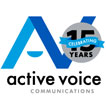
I’ve conducted countless interviews in my career, and every time, I learn something new, not only about the topic at hand but also about the actual process of interviewing. That’s because interviewing is a learned skill, and I’m constantly looking to improve.
Why do interviewing skills matter? A quality interview gets better quotes. It helps us build relationships with sources. It produces better soundbites. Most importantly, it helps us get the information we need. For content creators, our goal is not to write a thrilling exposé. We really just need useful information to fuel the content we’re creating — or simply to position a source as an expert.
But subject matter experts (SMEs) aren’t always forthcoming. It’s not that they’re deliberately withholding information. Oftentimes, it’s that they genuinely don’t realize the value of the information they have in their heads. Or they don’t understand why it’s important to participate when you could “just as easily find the information online.” (More than one source has said that to me during an interview.) Whatever the reason, a good interviewer can get past the barriers.
Of course, most of us aren’t going to achieve “Fresh Air” host Terry Gross status with our interviewing skills (nor do we need to). But we can always get better at our craft. Here are some thoughts on how.
Before the interview
The most important work you will do on an interview happens well before Outlook reminds you your interview is 15 short minutes away. I’m not going to lie; I’ve phoned it in several times. Sometimes interviews are scheduled at the last minute and I have to wing it. Sometimes I run out of time to adequately prepare. Sometimes I thought I knew the subject well enough that it didn’t matter. Experience has taught me that preparation is best.
Because the truth is, to get the interview you need, you must take the time to prepare questions in advance. And the questions should be based on research and a thorough internal dialogue about what you want to get out of the interview. In my own practice, I find that my interview prep almost always takes longer than the interview itself. It’s not just about writing down questions. It’s about thinking and being strategic.
As you prepare, think about your goals for the interview. Do you just need a quote? Do you need actual information? What can you research on your own? How can you make the interviewer feel as though they are actually lending some value here?
Schedule a pre-interview for recorded pieces
If the interview you’re planning to conduct is for a project in which actual audio or video of the interview will be used, you’ll want to take your preparation a step further and schedule a pre-interview. For my podcast, a passion project of mine, I have made it a practice to pre-interview all my guests. We schedule a casual 30-minute phone conversation in advance of recording. This gives me an opportunity to learn more about the source and get a sense of what they’re passionate about and willing to discuss. This additional step helps put everyone at ease during the recording and allows me to narrow my questions, essential components for a smooth podcast.
Prepare the interviewee
In journalism school, we were taught never to send our questions out in advance. We didn’t want canned answers, and we didn’t want interviewees to know about the gotcha question that was coming. But we’re not doing investigative journalism here. We’re trying to produce useful, compelling information for our target audiences. And so I have no problem providing sources with an overview of my topic, if not the actual questions ahead of time.
During the interview
As an interviewer, you have a few key responsibilities during the conversation. The first is to listen. It’s not to ask questions. That’s your job too, of course. But your job is to listen so that you know if your questions have been answered or if they need follow-up.
One of the hardest things about working in industries like health care and technology is that sometimes we let an answer stand on its own and assume we will be able to figure it out later. Then we sit down to write and realize we don’t actually understand what our subject matter expert told us. Maybe we manage to get good quotes, but we didn’t actually learn anything from the conversation. So actively listen when your source speaks.
Your second obligation as an interviewer is to make sure you get the information you came for. Ask questions in a way that are open-ended so that your interviewee can answer fully. No yes-or-no questions, if you can help it. Ask one question at a time. And keep your subject comfortable — it can be hard to be in the hot seat. Ask a couple of easy questions up front to put your source at ease. Make sure they know that you’re here to learn and to help others learn, that you are on their side. After all, you’re (probably) not writing an exposé.
At the close of the interview
Once you’ve made sure you’ve asked all of your questions, tell your SME what happens next. Give them a time frame as to when you plan to write your article or produce your audio or video content. Let them know you may have follow-up questions, and ask if it’s OK for you to reach out again, if needed. How would they prefer you do that? Email, phone, through an assistant or PR rep? And if you plan on sending the content to the source for review once it’s complete, let them know that too.
By taking the right steps, you can up your interview game and get information and quotes you won’t see anywhere else. And that makes for compelling content.

This is great! Exactly what I needed to read today. Thank you.
Got more out of this than some of the classes I took in J-school. Awesome!